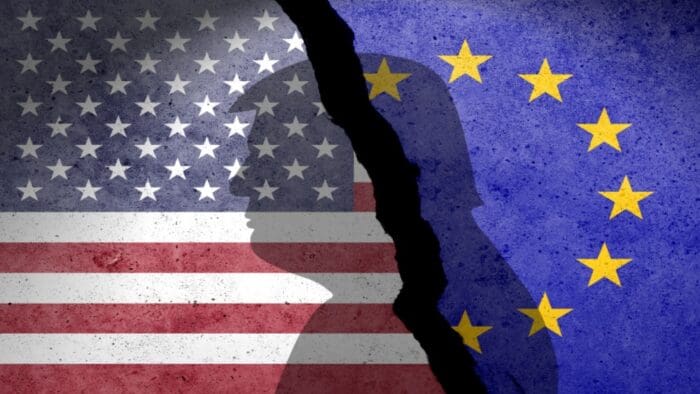Ministers Gather as EU Seeks Balance
Brussels is hosting a pivotal meeting of EU trade ministers today following President Trump’s unexpected announcement of 30% tariffs on a broad range of European exports. The bloc — the United States’ largest trading partner — faces significant economic exposure. Delegates have emphasized a dual-track approach: pursue a diplomatic solution while preserving readiness for potential retaliatory measures.
Impact on Export Sectors
The tariffs, slated to begin on August 1, threaten to increase U.S. prices on a wide array of European goods — from French dairy and Germ an machinery to Italian leather goods and Spanish pharmaceuticals — potentially destabilizing industries across the bloc. Responding proactively, the EU has postponed earlier retaliation plans to maintain avenues for negotiation.
Negotiation Timeframe & Diplomatic Push
Commission President Ursula von der Leyen confirmed that the recent letter from the White House affords Brussels until August 1 to negotiate terms. Maroš Šefčovič, the EU’s chief trade negotiator, has stated that while the bloc remains committed to reaching a negotiated agreement, “uncertainty cannot persist indefinitely,” and preparations for “proportionate countermeasures” are already in motion.
Global Trade Strategy Beyond Tariffs
While addressing urgent tariff concerns, the EU is advancing a broader strategy to diversify and strengthen trade partnerships. Šefčovič noted ongoing efforts to conclude a trade pact with Indonesia, and a high-level delegation is set to visit Beijing for a major summit. Brussels also plans deepened engagement with South Korea, Japan, Vietnam, Singapore, the Philippines, as well as major agreements with Mexico and Mercosur to reduce dependency on U.S. markets.
Internal EU Unity and Strategic Readiness
Despite internal differences, EU leaders have presented a united front. Denmark’s Foreign Minister Lars Løkke Rasmussen stated that while the bloc prefers peaceful resolution, it must also “prepare for war” by ensuring strategic options remain available. Meanwhile, Germany’s Finance Minister emphasized that if talks break down, the EU is ready to implement “decisive countermeasures to protect jobs and businesses in Europe.”
As the Council convenes, ministers must choose: lean into diplomatic resolution or press ahead with economic defense. With global trade shifting and geopolitical tensions high, today’s decisions will define Europe’s ability to navigate tariff threats, secure supply chains, and reinforce its position in global trade dynamics.







